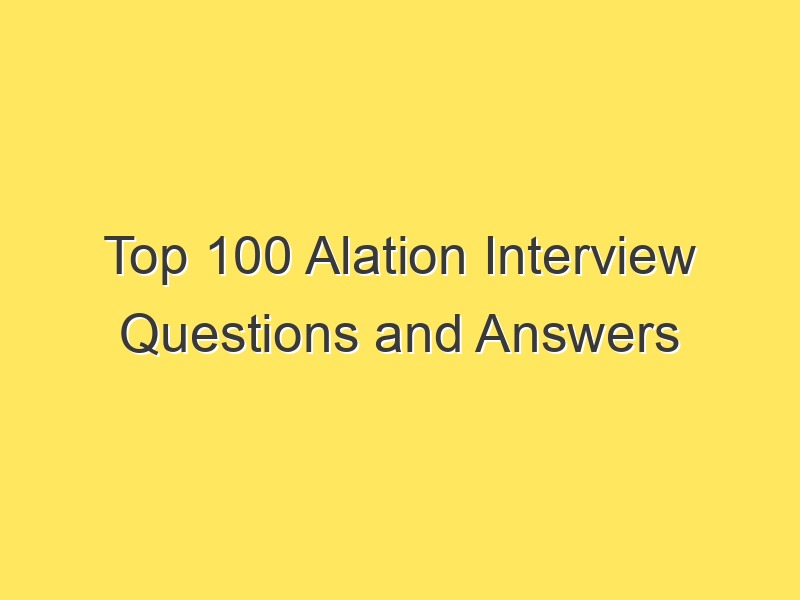How to Become a DevOps Engineer 2023 : A Comprehensive Guide to Success :
DevOps, short for Development and Operations, is a set of practices and cultural philosophies that aim to automate and streamline the software development and deployment process. DevOps engineers play a critical role in bridging the gap between development and IT operations, ensuring faster and more efficient software delivery. In this comprehensive guide, we will explore the steps to become a DevOps engineer, the skills required, and the tools and best practices associated with this dynamic field.

Chapter 1: Understanding DevOps
Before diving into the specifics, it’s crucial to grasp the core concepts and principles of DevOps:
- Collaboration: DevOps promotes collaboration and communication between development, operations, and quality assurance teams to achieve faster and more reliable software delivery.
- Automation: Automation is at the heart of DevOps, streamlining repetitive tasks, reducing errors, and enhancing efficiency.
- Continuous Integration (CI): CI involves automating the build and testing of code changes, ensuring that new code integrates smoothly with existing code.
- Continuous Delivery/Deployment (CD): CD extends CI by automatically deploying code to production after successful testing.
Chapter 2: Educational Requirements
A formal education in computer science, information technology, or a related field is a solid foundation for a DevOps career. However, many DevOps professionals have diverse educational backgrounds. Key areas to focus on include:
- Programming: Strong programming skills are essential, with proficiency in languages like Python, Ruby, or Java being highly beneficial.
- Linux/Unix: A deep understanding of Linux/Unix systems is crucial, as many DevOps environments are based on these platforms.
- Networking: Knowledge of networking concepts and protocols is valuable for configuring and troubleshooting network resources.
- Cloud Computing: Familiarity with cloud platforms like AWS, Azure, or Google Cloud is increasingly important, as many organizations are adopting cloud-based infrastructure.
Chapter 3: Essential Skills
To succeed as a DevOps engineer, you need a diverse skill set that goes beyond technical expertise:
- Automation Skills: Mastery of automation tools like Ansible, Puppet, or Chef is fundamental to DevOps.
- Scripting: Proficiency in scripting languages (e.g., Bash, PowerShell) is essential for writing automation scripts.
- Containerization: Understanding containerization technologies like Docker and container orchestration tools like Kubernetes is vital.
- Version Control: Proficiency with version control systems like Git is crucial for managing code repositories.
- Monitoring and Logging: Familiarity with monitoring tools (e.g., Nagios, Prometheus) and log management systems (e.g., ELK stack) is important for tracking system performance.
- Collaboration: Strong communication and collaboration skills are essential for working closely with development and operations teams.
Chapter 4: Tools and Technologies
DevOps engineers work with a wide range of tools and technologies to automate processes and manage infrastructure. Some key tools include:
- CI/CD Tools: Jenkins, Travis CI, CircleCI, and GitLab CI/CD are popular choices for continuous integration and delivery.
- Configuration Management: Tools like Ansible, Puppet, and Chef automate server configuration and management.
- Containerization and Orchestration: Docker for containerization and Kubernetes for container orchestration are industry standards.
- Cloud Platforms: Familiarity with cloud providers like AWS, Azure, and Google Cloud is crucial.
- Version Control Systems: Git is the most widely used version control system.
- Monitoring and Logging: Prometheus, Grafana, ELK Stack (Elasticsearch, Logstash, Kibana), and Nagios are commonly used for monitoring and logging.
- Infrastructure as Code (IaC): Tools like Terraform and AWS CloudFormation enable the automated provisioning of infrastructure.
Chapter 5: Certifications
Obtaining relevant certifications can validate your skills and boost your career prospects as a DevOps engineer:
- AWS Certified DevOps Engineer: Demonstrates expertise in DevOps practices on the AWS platform.
- Certified Kubernetes Administrator (CKA): Validates your Kubernetes skills.
- Certified Jenkins Engineer: Focuses on Jenkins automation and CI/CD.
- Docker Certified Associate: Demonstrates proficiency in Docker containerization.
- Certified Ansible Engineer: Validates expertise in Ansible automation.
- Google Cloud Professional DevOps Engineer: For those working extensively with Google Cloud.
Chapter 6: Building Practical Experience
Hands-on experience is invaluable for a DevOps career. Consider the following ways to gain practical experience:
- Personal Projects: Create personal projects to experiment with DevOps tools and technologies.
- Open Source Contributions: Contribute to open-source projects to gain exposure to real-world scenarios.
- Internships: Seek internships or entry-level positions in DevOps or related roles to gain industry experience.
- Home Lab: Set up a home lab with virtual machines or cloud resources to practice and experiment.
Chapter 7: Soft Skills and Best Practices
While technical skills are essential, soft skills and best practices are equally important:
- Communication: Effective communication and collaboration are key to working smoothly within DevOps teams.
- Problem Solving: Develop strong problem-solving skills to troubleshoot issues efficiently.
- Documentation: Maintain thorough documentation for processes and configurations.
- Security Awareness: Stay updated on security best practices to ensure the integrity of systems and data.
- Continuous Learning: DevOps is a constantly evolving field; stay updated with new tools and practices.
Chapter 8: Networking and Community Involvement
Networking and community involvement can open doors to opportunities and knowledge-sharing:
- Meetups and Conferences: Attend DevOps meetups and conferences to connect with professionals in the field.
- Online Communities: Join DevOps-related forums, blogs, and social media groups to stay informed and engage in discussions.
- LinkedIn and GitHub: Create a strong LinkedIn profile and contribute to projects on GitHub to showcase your skills.
Chapter 9: Landing Your First Job
Once you’ve acquired the necessary skills and experience, it’s time to start your DevOps career:
- Craft an Impressive Resume: Highlight your skills, certifications, and practical experience.
- Job Search: Look for DevOps engineer positions on job boards, company websites, and professional networks.
- Interview Preparation: Prepare for technical interviews, focusing on problem-solving and real-world scenarios.
- Continuous Growth: Once you land your first job, continue learning and adapting to stay competitive in the field.
Conclusion
Becoming a DevOps engineer is a rewarding journey that involves continuous learning, technical mastery, and strong collaboration skills. By understanding the core principles, acquiring the necessary skills, and gaining practical experience, you can embark on a successful career in this dynamic and ever-evolving field. Remember that DevOps is not just about tools; it’s a cultural and organizational shift that emphasizes efficiency, collaboration, and automation in software development and operations.







